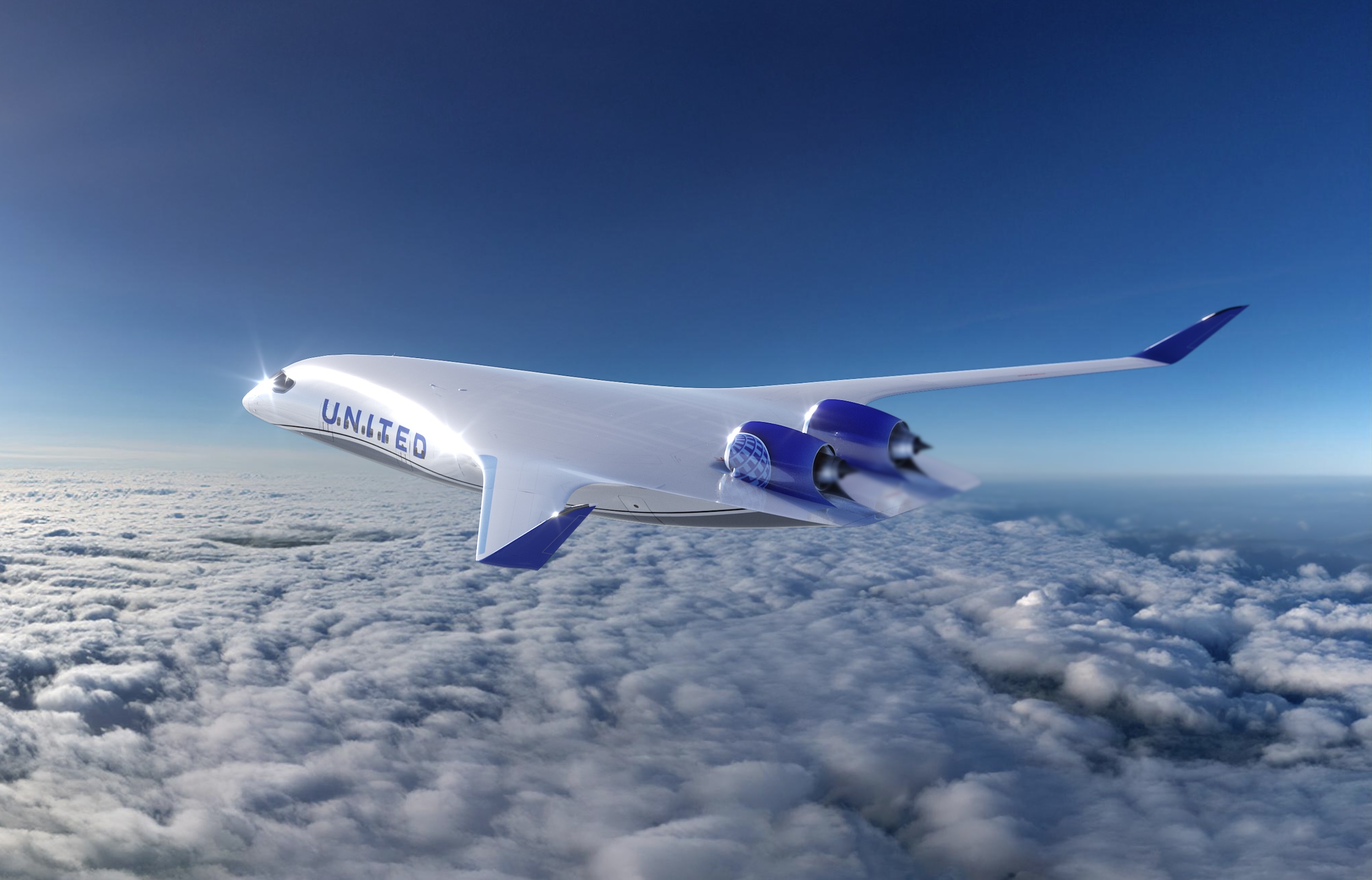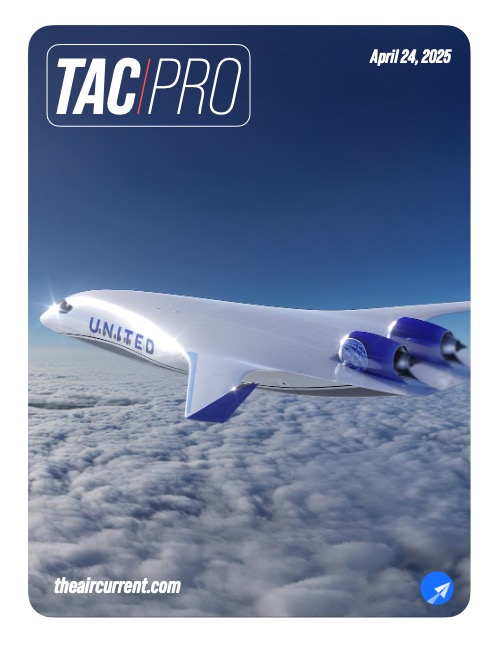Log-in here if you’re already a subscriber
Ten months after its chief executive Scott Kirby voiced frustration with the jetliner duopoly and called for more competition in the sector, United Airlines on April 24 announced an equity investment in blended wing body aspirant JetZero.
United said its “investment includes a path to order up to 100 airplanes and an option for an additional 100” conditional on JetZero’s achievement of development milestones, including flight of its full-scale demonstrator currently scheduled for the second quarter of 2027, 24 months away.
United isn’t sharing the size of its investment in the Long Beach, California startup. (The airline said it was not large enough to require a disclosure with the U.S. Securities and Exchange Commission, but for a company of United’s size, only very large investments or firm orders would trigger that requirement.) Not including this latest funding from United, JetZero has raised $300 million, including a $235 million award in 2023 from the U.S. Air Force earmarked through fiscal year 2026 for the company’s full-scale demonstrator currently under development.
Related: United CEO wants to see an end of the jetliner duopoly
The bridge between JetZero’s demonstrator for the U.S. Air Force and the entry into service of a certified commercial airliner as early as 2030 remains a long one, requiring full-scale technical validation, industrial infrastructure for manufacturing, a propulsion provider, in-service support network and billions of dollars in capital to support development and certification.
Yet, in an era of airlines placing loose bets on aviation startups, United’s investment and interest in JetZero’s design stands out from its previous venture capital investments, which have been in aircraft whose market niches don’t target a spot in its current fleet. Notably, this JetZero investment is the first to offer a potential direct challenge to the Airbus and Boeing duopoly.
Subscribe to continue reading...Subscribe to Continue Reading
Our award-winning aerospace reporting combines the highest standards of journalism with the level of technical detail and rigor expected by a sophisticated industry audience.
- Exclusive reporting and analysis on the strategy and technology of flying
- Full access to our archive of industry intelligence
- We respect your time; everything we publish earns your attention


